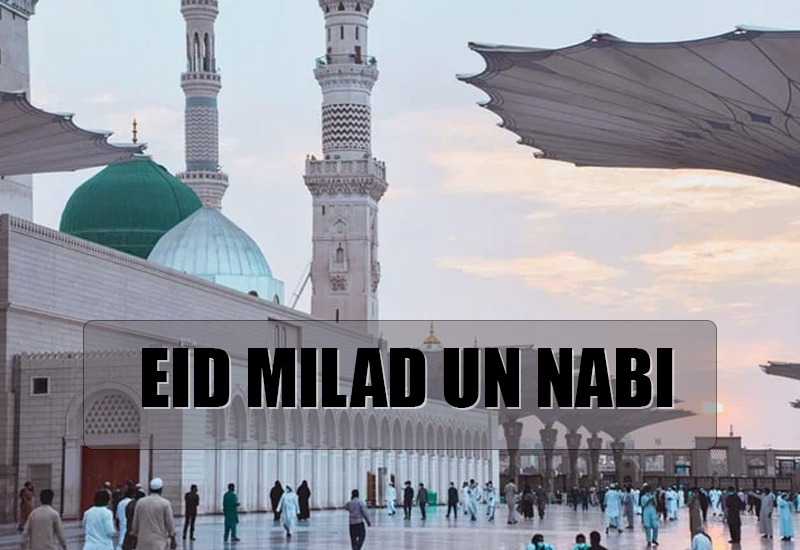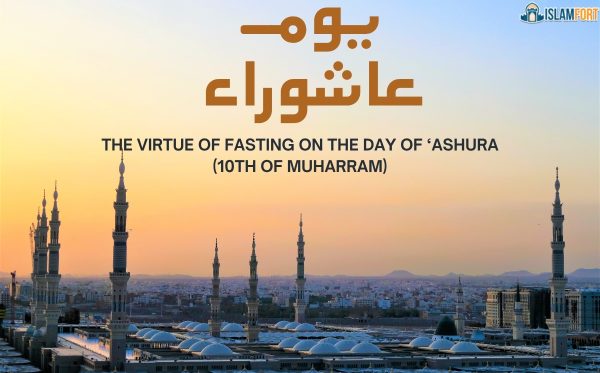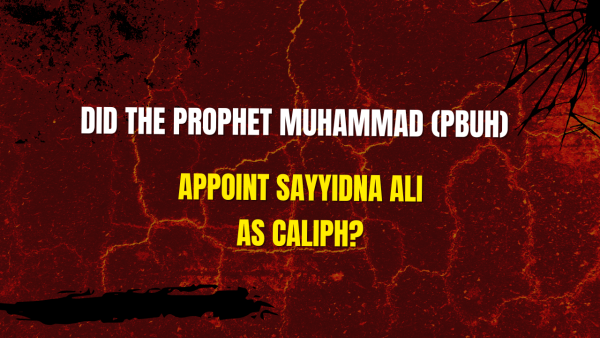Come the month of RabbiulAwwal, the streets are lighted up in many of the Muslim countries with white and green. Muslims around the world commemorate the birth of the Prophet Muhammad ﷺ through what is called Maulid Un Nabi every 12 Rabiul Awal in the Hijri calendar. Everything around adopts various shades of green marking an “assumed” holy month. Nasheed and naat (poems that praise the Prophet ﷺ are heard playing on the streets many a times containing stanzas that are clearly shirkiya (against the Oneness of Allah (عَزَّوَجَلَّ) in nature.
The month of RabiulAwwal is generally marked as the birth of the Prophet ﷺ. It is known by various names, primarily Eid-Miladun-Nabi, Jashne-Miladun-Nabi – names that have not been identified as a description for the month or 12 RabiulAwwal specified date for that matter in any hadith or authenticated narration. In fact, the narration states that the Prophet ﷺ has been recorded to say that he ﷺ was born on a Monday. We learn in a hadith:
قَالَ وَسُئِلَ عَنْ صَوْمِ يَوْمِ الاِثْنَيْنِ قَالَ ” ذَاكَ يَوْمٌ وُلِدْتُ فِيهِ وَيَوْمٌ بُعِثْتُ أَوْ أُنْزِلَ عَلَىَّ فِيهِ
He was then asked about fasting on Monday, whereupon he said: “It was the day on which I was born on which I was commissioned with prophethood or revelation was sent to me…”
(Sahih Muslim 1162b)
Imam Ibn Abdil Bar in his book al-Isti’ab, stated that the Prophet ﷺ was born 8 days past the month of Rabiul Awwal (entered the 9th night). [1]
With regards to the year, it has no dispute. It was the Year of the Elephant. Ibn al-Qayyim (Rahimullah) said:
“There is no difference of opinion concerning the fact that he (blessings and peace of Allah be upon him) was born in Makkah, and that his birth was in the Year of the Elephant.” [2]
My intention is really not to go into the debate of whether it was the 9th or the 12th of RabiulAwwal as the birthdate of the Prophet ﷺ. What I would like to invite my readers to ponder upon is the question that why is it so important that we celebrate the Prophet ﷺ just this one day or this one month? Why do we anyways want to single out just one day of any year for showing our love, whether it be birthday anniversary or any suchlike? Love for anyone is not on a single day, rather it is a lifetime appreciation while love is manifested in many ways.
Singling out one day for appreciation, love or presence is the way of the West. It is for the self-satisfaction of the one celebrating and a self-soothing exercise rather than the right the relationship really deserves. It is a “feel-good in the moment” activity. Once it is over, people go back to their daily lives unconcerned, uncaring and on most part unloving.
For Muslim, the love for our Prophet ﷺ is shown when we begin to follow him ﷺ in his ways. To understand that he has been given to us as the best of examples that must be followed in all walks of life:
لَّقَدْ كَانَ لَكُمْ فِي رَسُولِ اللَّهِ أُسْوَةٌ حَسَنَةٌ لِّمَن كَانَ يَرْجُو اللَّهَ وَالْيَوْمَ الْآخِرَ وَذَكَرَ اللَّهَ كَثِيرًا
There has certainly been for you in the Messenger of Allah an excellent pattern for anyone whose hope is in Allah and the Last Day and [who] remembers Allah often.
[Al-Ahzab: 21]
Yes of course, there is a celebration with his prophethood. It is the fact that through him we have received the verses of the Qur’an. To know what it is that we are celebrating him for is depicted in this ayah of the Qur’an:
In the Qur’an it is mentioned:
قُلْ بِفَضْلِ اللَّهِ وَبِرَحْمَتِهِ فَبِذَٰلِكَ فَلْيَفْرَحُوا هُوَ خَيْرٌ مِّمَّا يَجْمَعُونَ
Say, “In the bounty of Allah and in His mercy – in that let them rejoice; it is better than what they accumulate.”
[Surah Yunus: 58]
The context of what is to be celebrated and what the word فَبِذٰلِكَ points to which is what is to be really celebrated – is the Qur’an. Allah (عَزَّوَجَلَّ) selected the Prophet ﷺ to descend upon the beloved Prophet ﷺ. Through the ayahs of the Qur’an and his ﷺ way of life, religion was completed holistically. He was chosen the one to be with the title of Rahmatul-lilalameen (mercy to mankind). He was the one who sacrificed his life for the spreading of Islam. He was the one to implement and show the world what the real deen was to be like.
The irony of celebrating this month is none other than the fact that this month held no significant value for the Prophet ﷺ himself and nor his loved ones including his wives nor the Companions. (RadiAllahu Ajmaeen).
So why do we celebrate 12 RabiulAwwal in the manner that we have self-ordainedly prescribed? Where are its roots stemming from and where do we go from here?
So first of all, what are all these practices that are so profoundly a part of our culture.
- The practice of Naatkhwani held in various houses that materialize into Milad
- Khatam (or recitation of the entire Qur’an ending with distribution of food to the poor)
- The lighting of insence during these gatherings
- The standing up after these gatherings to recite, Ya Nabi SalamuAlaika (O Prophet, we send salam to you). This, being strangest of the practices in my opinion so I will elaborate on this a bit.
So the practice is that at the end of the gatherings where naat, nasheed and suchlike are recited, all the ladies in the gathering and those men who are asked to join in would stand up to recite: “Ya Nabi SalamAlaika, Ya Rasul SalamAlaika.” The idea behind the standing up and reciting is to honor the Prophet ﷺ who in their humble opinion is coming to receive that durud. The idea with all due respect is quite outlandish.
A person who has left the earth and faced with death has no possibility of coming back to this duniya, so to have him come back to receive durud is yet quite unthinkable. And here are many people across the globe, standing up in honor of the Prophet, their hands crossed in front of them, eyes down in respect and creating a practice that has never been practiced ever before and in fact is an addition to the actual Deen itself!
The durud (salutation) that is really received by the Prophet as per authentic hadith is on the Friday where salutations are sent.
Aws ibn Aws reported: The Messenger of Allah ﷺ said:
إِنَّ مِنْ أَفْضَلِ أَيَّامِكُمْ يَوْمَ الْجُمُعَةِ فِيهِ خُلِقَ آدَمُ وَفِيهِ قُبِضَ وَفِيهِ النَّفْخَةُ وَفِيهِ الصَّعْقَةُ فَأَكْثِرُوا عَلَيَّ مِنْ الصَّلَاةِ فِيهِ فَإِنَّ صَلَاتَكُمْ مَعْرُوضَةٌ عَلَيَّ
“Verily, the best of your days is Friday. Adam was created on it, on it he died, on it the trumpet will be blown, and on it the shout will be made. Thus, send blessings upon me often, for your blessings are presented to me.”
(Sunan Abī Dāwūd 1047)
What if he really came to visit you? There was this famous little poem that circulated in the social media by the name of, “If the Prophet ﷺ Visited You?” It is worth a read. [3] It speaks of how we would actually incorporate him ﷺ in our lives or would we even want to?
Hence, the loving of the Prophet ﷺ is in following him ﷺ. He never wanted anyone to celebrate his birthday, birth-month or even death. He strictly advised the Sahaba in the following hadith:
Abu Huraira (رَضِيَ ٱللَّٰهُ عَنْهُ) reported: The Prophet ﷺ said,
“O Allah, do not turn my grave into an idol that is worshiped. Allah has cursed people who take the graves of their prophets as places of worship.”
(Musnad Aḥmad 7352)
In conclusion, we need to follow the Prophet ﷺ in his methodology and footsteps if we really want to celebrate his birth and his life. May Allah (عَزَّوَجَلَّ) give us the ability to follow religion in its correct way and stay away from all innovation. Aameen.
[1] https://theislamicinformation.com/fatwas/is-12th-rabi-ul-awwal-birthday-of-prophet-muhammad/
[2] (Zad al-Ma’ad fi Hadiy Khayr al-‘Ibad, 1/76)
[3] https://www.soundvision.com/article/if-the-prophet-visited-you












